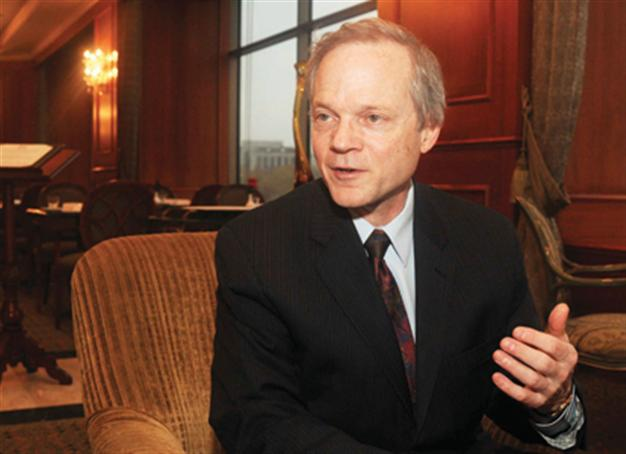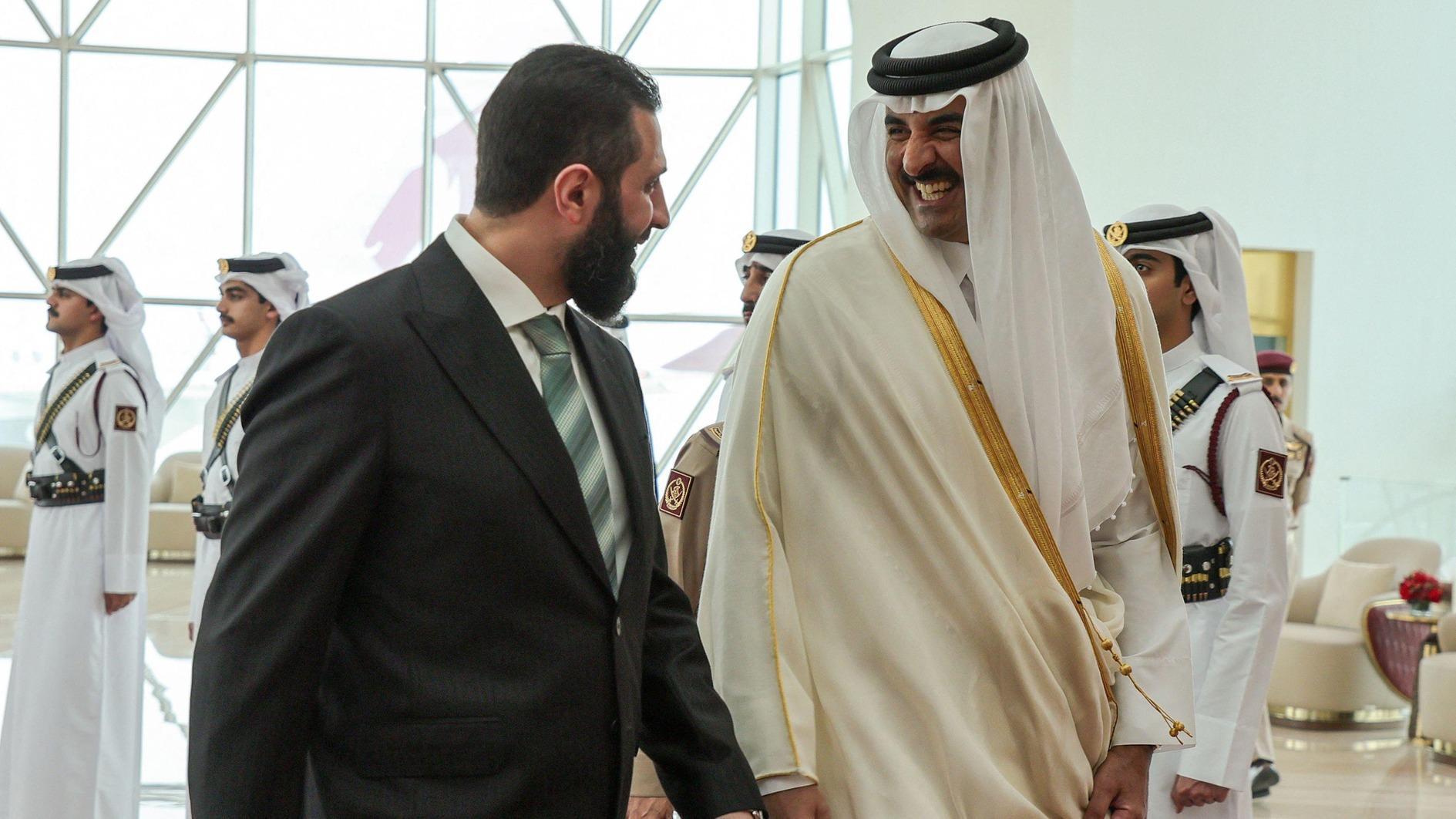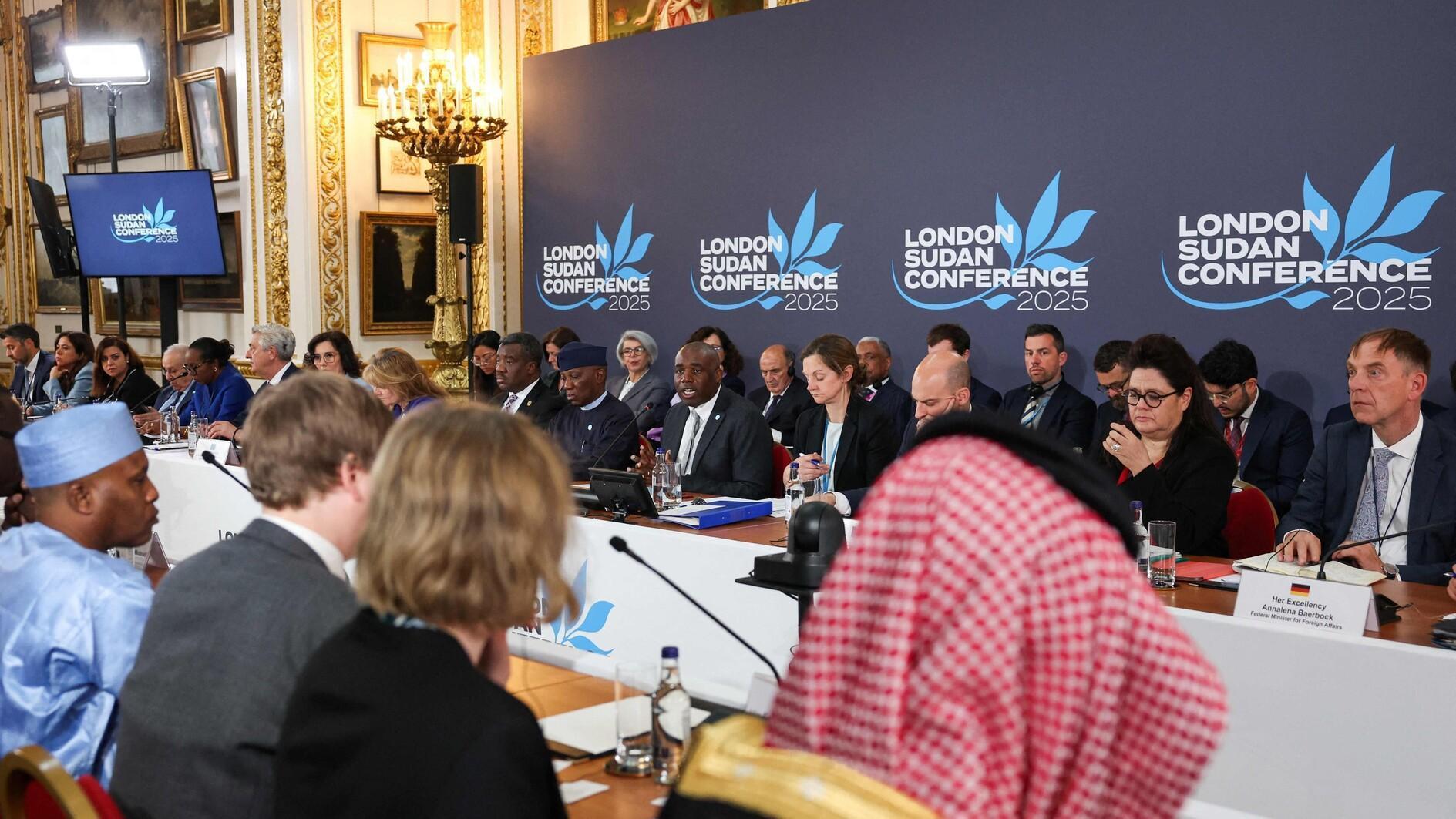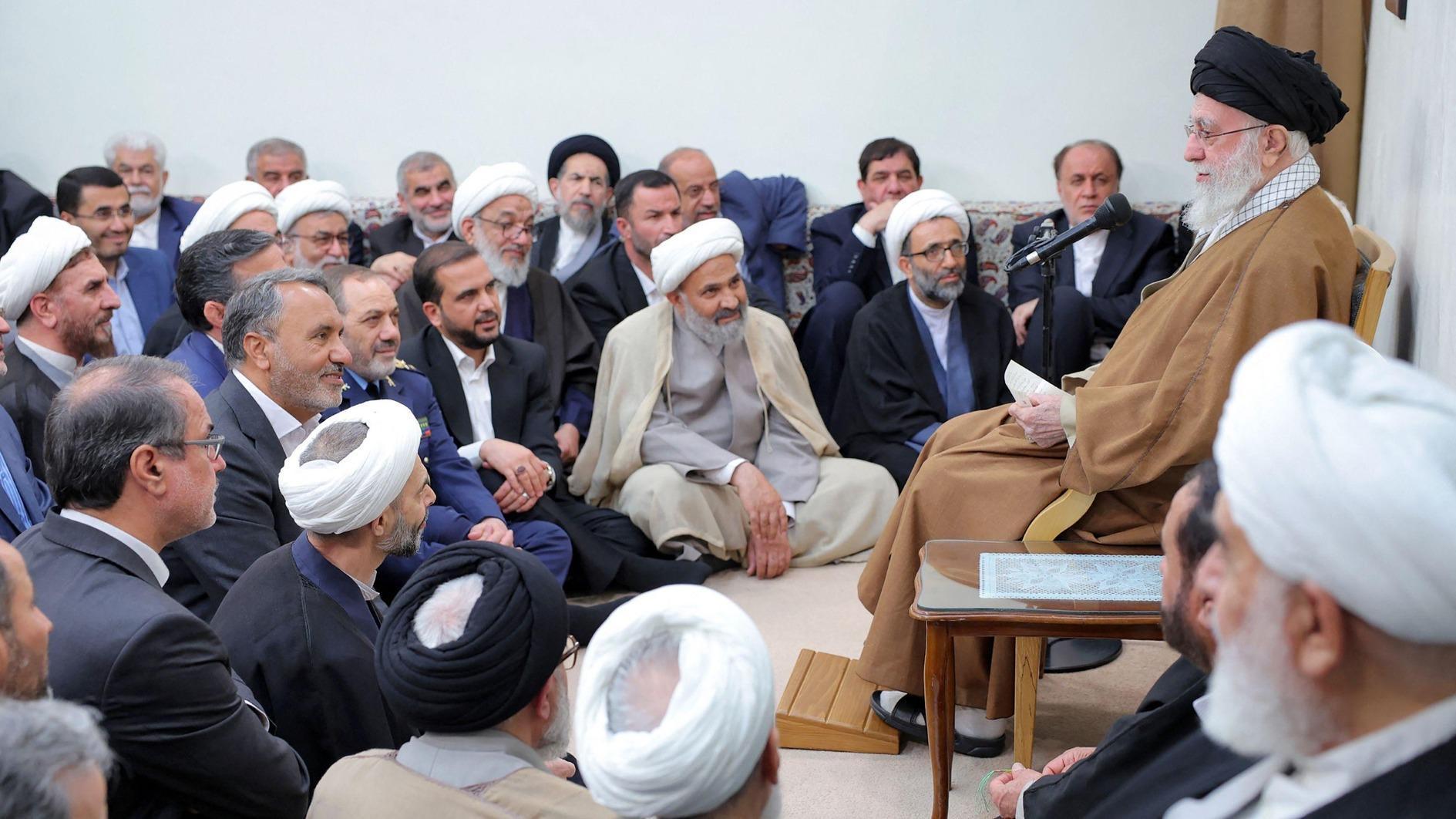Mideast ‘risks seeing nuke race’
İPEK YEZDANİ ISTANBUL - Hürriyet Daily News

the director the Non-Proliferation and Disarmament Programme at the International Institute for Strategic Studies (IISS) in London, Mark Fitzpatrick, is seen in this photo. DAILY NEWS photo, Hasan ALTINIŞIK
The entire Middle East must be cleared of nuclear weapons, the director of the Non-Proliferation and Disarmament Programme at the International Institute for Strategic Studies (IISS) in London has said.
“The Middle East should be a ‘nuclear weapon-free zone.’ Iran uses Israel’s nuclear program as an excuse to have nuclear weapons, and if Iran gets nuclear weapons, Saudi Arabia would certainly like to have nuclear weapons, too,” Mark Fitzpatrick, the director of the Non-Proliferation and Disarmament Programme at the International Institute for Strategic Studies (IISS) in London told to Hürriyet Daily News & Economic Review in an interview.
The Islamic republic trails North Korea and Pakistan in terms of the nuclear threat it poses to the rest of the world, according to Fitzpatrick. “Iran is the third problem because it doesn’t have [weapons] yet,” he said.
Fitzpatrick said an International Atomic Energy Association (IAEA) report released last week showed that Iran’s nuclear program had a military dimension.
“No one can claim that it is purely peaceful. They are pursuing every aspect [to do with] weapons,” he said. “How far they got is not clear.”
Meanwhile, the ratification of an international treaty banning nuclear tests by a host of critical countries would help in preventing proliferation but it is not the only answer, Tibor Toth, the executive secretary of the Comprehensive Nuclear-Test-Ban Treaty Organization (CTBTO), told the Hürriyet Daily News in an interview Nov. 15.
Toth attended the “The Role of the CTBT in regional and global security” workshop, which was hosted in Istanbul by the Turkish Foreign Ministry. CTBT refers to the Comprehensive Nuclear-Test-Ban Treaty. The workshop aimed to promote the entry into force of the CTBT, which bans all nuclear explosions, as well as the completion of the treaty’s verification regime.
The ratification of the CTBT by Iran and others “would be a right step to the right direction. However, this step is not sufficient; we need additional steps on both nuclear non-proliferation and nuclear disarmament,” Toth said.
Toth said the treaty still needed to be ratified by key countries such as Iran, Israel, the United States, North Korea, China, India and Pakistan. The secretary added, however, that the ratification of the U.S. would be a “game changer.”
“There is an opportunity for these countries, including Iran, that would like to move to cooperative security. If Iran ratifies the treaty together with the other steps of transparency in the context of the non-proliferation treaty, it would be a good demonstration of a positive and constructive approach,” Toth said.
Toth also said they would be working with Turkey on ways to promote further ratifications of the treaty. “Turkey plays an important promotional role for the treaty because Turkey’s political voice is listened to as well,” he said.
Some 182 states have signed the treaty so far, while 155 states have ratified it, including France and Russia, which possess nuclear weapons. Forty-four countries that possess nuclear technology, however, must sign and ratify the CTBT before it can enter into force.
CORRECTION: In a previous version of this story, the Daily News incorrectly cited the titles and comments of the two sources quoted and attributed them to each other. The errors were corrected on Nov. 20, 2011. The Daily News regrets the error.
















